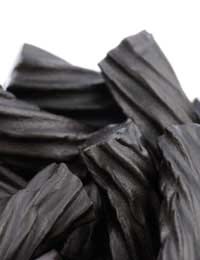Which Drugs or Foods React With Diuretics?

Diuretics are typically used to treat heart failure, hyper tension, liver cirrhosis and kidney disease. There are several separate types of diuretics which each act in a different way, although all are designed to increase the excretion of water from the body in order to maintain heart function, exercise ability and relieve swelling or fluid retention. Diuretics work by increasing the amount of salt and water in the body which then lowers blood pressure, allowing the heart to pump blood more effectively
Foods
Virtually all diuretics, also known as ‘water pills’ are taken once or twice a day. However, sometimes a combination of two different types of diuretics are prescribed as this can be the most effective method of treatment. Because of the different types of diuretics, the effect they have is not only varied but actually in direct contrast as some will raise the level of potassium in the body, whilst others will lower it. As potassium is essential to the bodies functioning, particularly muscle contraction, it is recommended a patient eats and drinks certain foods and beverages or avoids them completely depending on their altered potassium levels during a course of diuretics. Bananas, oranges and citrus fruit drinks are high in potassium, as are most frozen vegetables or green leafy vegetables.Substitutes
Depending on the type of diuretic, your doctor may also recommend salt and magnesium substitutes but do not do so unless advised as they may cause a potassium overload. To make up for their absence when on a course of diuretics it is may also be advisable to eat foods rich in zinc and magnesium such as shrimp, whole grains, nuts and seeds.Before undertaking a prescription of diuretics it is essential to inform your Doctor of all medicines you use, in particular; lithium, digoxin, dofetilde, oral drugs for diabetes, aspirin, ibuprofen, naproxen, fluconazole, colestipol and chloestryamine. Ibuprofen and other pain alleviating drugs cause the body to retain salt and fluid where as diuretics are designed to have the opposite effect in ridding the body of excess salt and fluid. If both are taken then naturally this will diminish the diuretic’s effectiveness.Decongestants like cough and cold medicines plus any drugs that increase heart rate or excitement should not be taken with diuretics. Perhaps surprisingly it is black liquorice more than anything else that should be totally avoided with diuretics as consumed in tandem with the drug they will produce dangerously low potassium levels leading to numbing weakness, muscle pain, irregular heartbeat, paralysis and even cardiac arrest.Although there many foods and drugs that must be taken into consideration when taking diuretics there is an even higher number of seemingly benign herbs that must be eliminated; alder, buckthorn, buchu, cleavers, dandelion, digitalis, gravel root, horsetail, juniper and uva ursi which if taken can enhance the medicines power leading to cardiovascular side effects.
Finally as a potential alternative to a chemical prescription there are some foods which act as a natural diuretic such as cabbage, celery, eggplant and parsley.


Re: Which Drugs or Foods React With Enoxaparin?
I am presently treating a DVT with clexane. I have also read so many articles which state that ginger has blood…
Re: Which Drugs or Foods React With Aspirin?
I had breast cancer 18 months ago. I had a mastectomy and have had chemo and radiotherapy Medication I am…
Re: Which Drugs or Foods React With Agrylin?
I am considering Agrylin because I have been onHydroxyurea for 8 Years. I have had 26 surgeries for skin cancer…
Re: Fatty Food and Drugs
Advocate for fatty meal intake prior to administration of lipophobic drugs when a delayed onset of action of drug is desired
Re: Fatty Food and Drugs
Advocate for fatty meal intake prior to administration of lipophilic drugs when a delayed onset of drug action is desired. I humbly need help
Re: Which Drugs or Food Interact With HRT?
I’m currently on Prempro and it seems to have started to not work as greatly as it had. Rather than up my dosage…
Re: Which Drugs or Foods React With Inhibitors?
@Jojo - it sounds like a case of keeping to what has been tried and tested! Hope you're now back to normal.
Re: Which Drugs or Foods React With Inhibitors?
I have been on Nardil for many years, and have had one or two incidents in the past, headaches…
Re: Which Drugs or Food Interact With HRT?
I am on hrt patches can I take fo ti which is a Chinese supplement along with them
Re: Which Drugs or Foods React With Warfarin?
Papa - Your Question:I take 6mg warfrain daily after having pulmonary embolism covering both lungs.Can I take an…